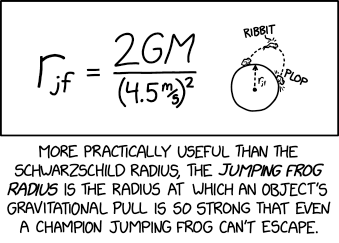The December Comfort Watches 2025, Day Seventeen: Pleasantville


Nostalgia is a trap. The people who indulge in it do so with selective memory, either their own or someone else’s. When I was a kid in the 80s, people looked back yearningly at the 50s as a simpler and better time, when families were nuclear, entertainment was wholesome and a slice of pie was just a nickel, conveniently eliding the segregation of black citizens, the communist witch hunts, and the fact that women couldn’t get things like credit cards or mortgages without a husband or some other male authority. Later people started looking at the 80s the way the 80s looked at the 50s, and they enjoyed the dayglo colors and the cheeky music and forgot apartheid, the cold war, leaded gas and smoking everywhere, or the fact that gay men were dying of AIDS and the US government (for one) couldn’t be persuaded to give a shit. I don’t feel nostalgia for the 80s; I lived in it. A whole lot of things about it were better left behind.
And still, nostalgia persists, because being an adult is complicated, and that time when you were a kid (or frankly, didn’t even exist yet) was uncomplicated. You didn’t have make any decisions yet, and all the awful things about the era existed in a realm you didn’t really have to consider. The golden age of anything is twelve, old enough to see what’s going on and not old enough to understand it.
Pleasantville is all about the trap of nostalgia and how its surface pleasures require an unexamined life. Tobey Maguire, in one of his first big roles, plays David, a high school student with a sucky home life who is obsessed with the 50s TV show Pleasantville, a sort of Father Knows Best knock-off where there patriarchy is swell and there is no problem that can’t be resolved in a half hour. For a kid from a broken home, whose mom is about to sneak off for a weekend assignation in a moderately-priced hotel, Pleasantville sounds like paradise.
That is, until David and his twin sister Jennifer (Reese Witherspoon) are, by way of a magical remote control, whisked away to Pleasantville itself, in all its monochromatic 50s glory, and forced to take on the roles of Bud and Mary Sue Parker, the two kids of the series’ main family. For Jennifer, who is a Thoroughly Modern Millennial, this is a fate worse than death; she had plans for the weekend, and they didn’t involve dressing up like a square. David, on the other hand, is initially delighted. He knows the series inside and out, is excited to be in the highly delineated world of his favorite show, and assures his perturbed sister that as long as they play the roles assigned to them, everything will be fine until they find their way back to the 90s.
You don’t have to be a devotee of 50s sitcoms to guess how long it takes until things start going awry. David and Jennifer, whether they intend to or not, are now the proverbial snakes in the garden, bringing knowledge into a formerly innocent world, sometimes literally (David tells other teens what’s in the formerly blank library books, and the words magically fill in) and sometimes also literally, but not using words (Jennifer introduces the concept of orgasms, and boy howdy, is that a game changer). As things get more complicated, some people get unhappy. And when some people get unhappy, they start looking for someone to blame.
Pleasantville is not a subtle film by any stretch: when people start deviating from their assigned roles, they change from monochrome to color, which allows the film to label part of its uniformly Caucasian cast as “colored,” which… well, I know what extremely obvious allusion writer/director Gary Ross was trying to make here, and the best I can say about it is that it is not how I would have done it. Also, any film where a nice girl character offers a nice boy character an apple right off the tree is not trying to sneak anything past you. The movie wears its lessons and motivations right on its sleeve, and in neon.
What are subtle, though, are the performances. With the exception of J.T. Walsh, who plays the mayor of Pleasantville with big smiling back-slapping friendly menace, no one in this movie is overplaying their hand. We notice this first with David/Bud and Maguire’s bemused way of getting both of them through the world, both ours and Pleasantville’s. But then there’s Bill Johnson, the owner of the malt shop Bud works in, who is initially befuddled when things are out of sequence, but gets progressively delighted the more improvisation gets added into his life. Bud’s dad George (William H. Macy) finds his role as paterfamilias slipping away and is befuddled rather than angry about it. Even Jennifer, who initially comes in as a wrecking ball, finds a lower gear.
But the true heart of Pleasantville is Betty, Bud and Mary Sue’s mom, played by the always tremendous Joan Allen. Like everyone else in Pleasantville, Betty starts off as a naïf, who only knows what’s been written for her. But the more she strays from what she’s supposed to be doing and saying, the more she understands that what she’s “supposed” to be doing and saying stands in total opposition to what she actually needs — when, that is, she finds the wherewithal to both understand and act on those needs. Her transformation is bumpy, not without backtracks, and deeply affecting. Joan Allen did not get any awards for this film, but it is an award-worthy performance.
(Also award-worthy: Randy Newman’s score, which was in fact nominated for an Oscar.)
It’s this dichotomy — high concept, deeply ridiculous premise, and heartfelt, committed character performances — that fuels Pleasantville and makes it work better than it has any right to. It would have been so easy just to play this film as farce, and you know what? If the film had been played as farce, it would have been perfectly entertaining. Watch the latter-day Jumanji films, the ones with Dwayne Johnson, Kevin Hart and Jack Black (and Karen Gillan! Whose comedic talents are underrated!) and you’ll see how playing a ridiculous concept almost purely as farce can be both amusing and profitable. There is a world where Pleasantville is one of those 90s comedy movies whose titles on the movie posters were big chunky red letters. It’s just not this world, and the film is better for it.
By now at least some of you may have figured out why I find Pleasantville so compelling and watchable. What Ross is doing in this movie is the same sort of thing I do in a lot of my writing: Take a truly ridiculous, almost risibly farcical concept, and then make characters have real lives in the middle of it. You’ll see me doing it in Redshirts and Starter Villain and especially in When the Moon Hits Your Eye, in which, you’ll recall, I turned the moon into cheese. A lot of people think doing this sort of thing is easy, which, one, good, I try to make it look like that, and two, if you actually think it’s easy to do, try it. It takes skill, and not everyone has it, and not every book or play or TV show or movie that attempts it gets it right.
Pleasantville gets it right. It looks at the pleasures of nostalgia and says, you know what, it’s not actually all that great when you think about it. It’s no better than the real world and the modern day.
It’s hard to believe it just now, but there will come a time when someone looks back at 2025 and thinks, what a simpler, better time that was. Not because their world is that much worse (I mean, shit, I hope not), but because by then all of this will be rubbed smooth and easy and someone who is twelve now will remember it as carefree. Those of us over twelve will know better what lies underneath pleasant nostalgia. So does this film. Nostalgia is never as great as you remember it.
— JS
 Today, I went on a journey to far away. Southeast of Cincinnati, to be more specific. While these past few days have been filled with icy roads, single digit temperatures, and disgusting slush of dirty snow and salt, today produced a much warmer and sunnier day. Thus, the snow began to melt, and everything turned to mud.
Today, I went on a journey to far away. Southeast of Cincinnati, to be more specific. While these past few days have been filled with icy roads, single digit temperatures, and disgusting slush of dirty snow and salt, today produced a much warmer and sunnier day. Thus, the snow began to melt, and everything turned to mud.

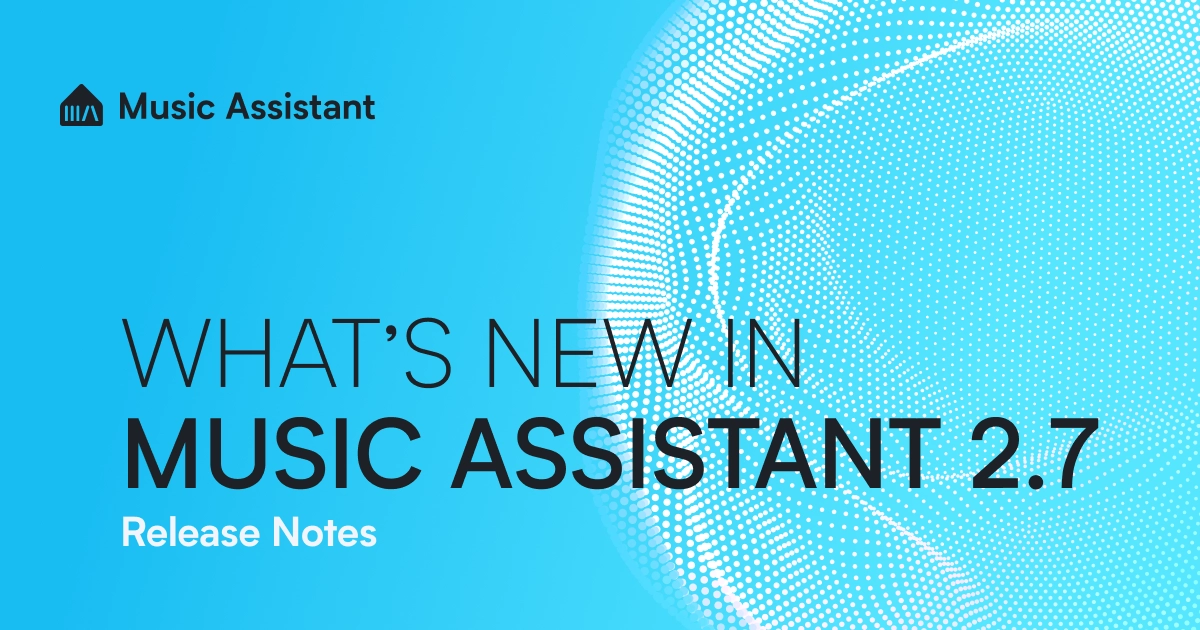
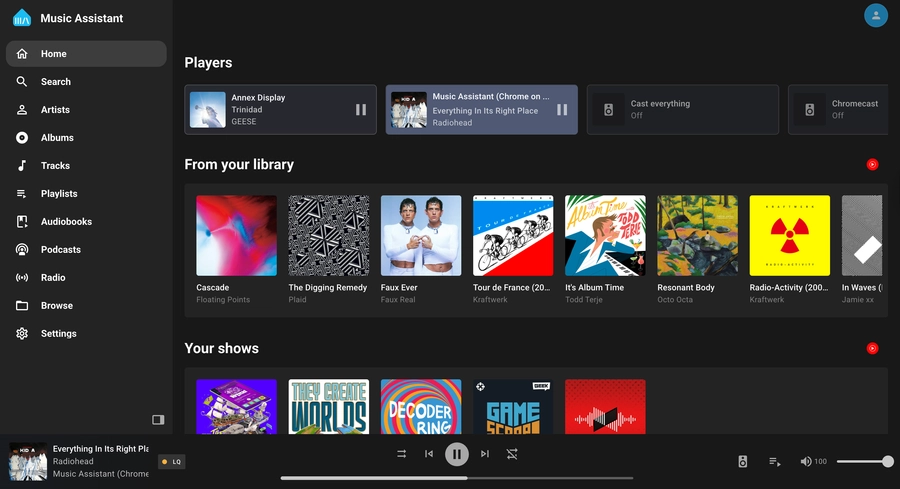 A well deserved visual refresh
A well deserved visual refresh
 User profiles for the whole family!
User profiles for the whole family!
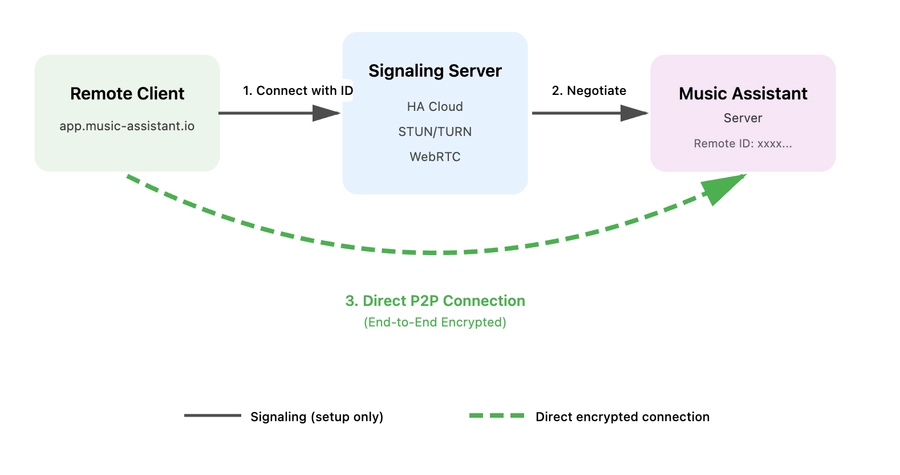 No matter where, no matter when
No matter where, no matter when
 It's time for karaoke!
It's time for karaoke!
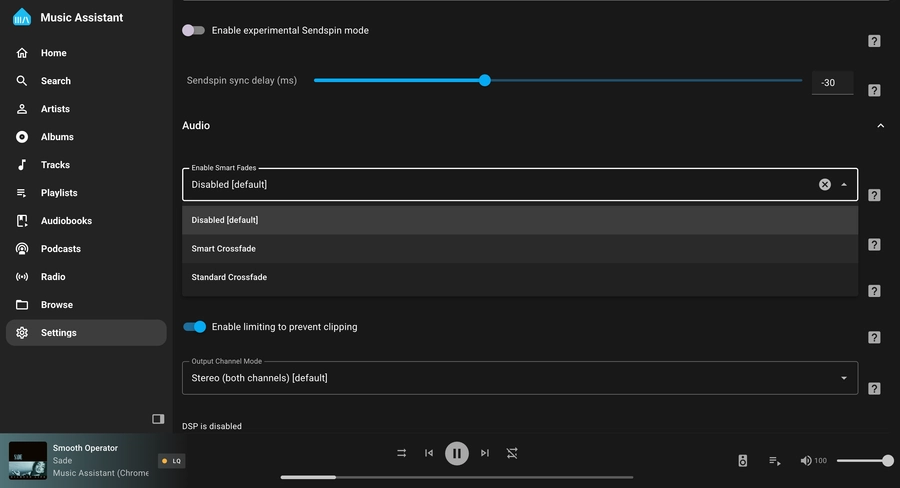 Making your playlists seamless
Making your playlists seamless
 Music Assistant is also cast compatible!
Music Assistant is also cast compatible!



